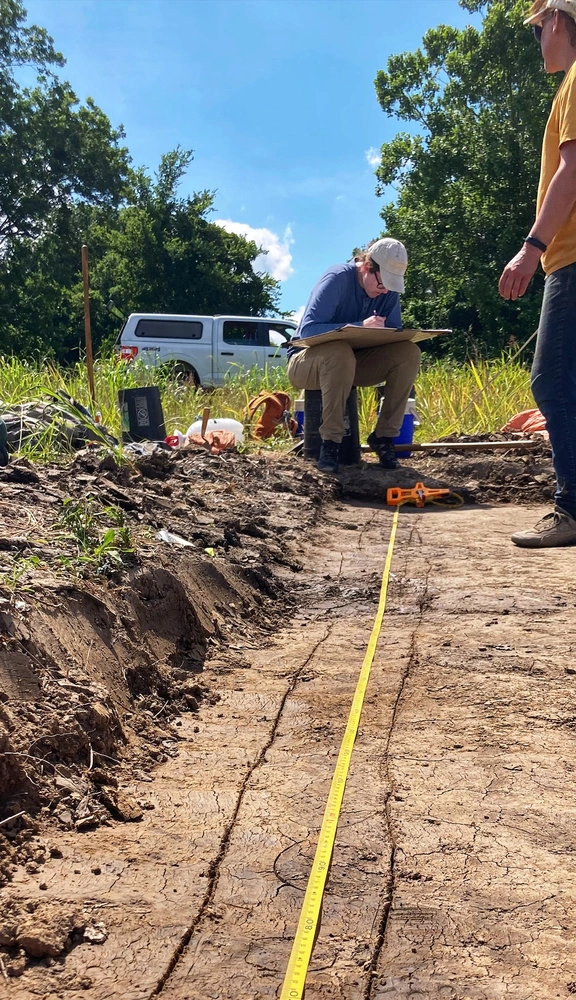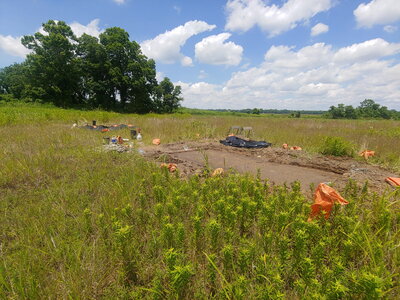
This summer I conducted archaeological excavations at the Carson site near Clarksdale, Mississippi. This is a mound center used and occupied by Mississippian peoples beginning around the year A.D. 1000 until the time of European contact. My research explores the connections between this site in Mississippi and the site of Cahokia near present-day St. Louis. Preliminary work (including my own ceramic analysis) has indicated that people from the city of Cahokia ventured out far from their home to interact with distant people and powerful places. These distant travels seem to begin just as the city of Cahokia is being founded and built. The archaeological evidence for these pilgrimages includes distinctly Cahokian architecture and artifacts in places where local people did not build or make things in the same ways. I argue as part of my dissertation work that these pilgrimages, movements, and interactions with distant landscapes were acts of world-building for the newly formed city of Cahokia, its people, and the new religion that arose with their city.
My 2022 summer project funded by the Medieval Studies research grant was the beginning of this larger dissertation project. The work involved re-excavating two of these Cahokian houses at a settlement area near Mound A at the Carson site. Leading a team of three other archaeologists, I re-exposed the original floor surfaces of these houses and mapped all of the architectural features, including posts, wall trenches, and interior supports. These maps will be used in my dissertation to compare this settlement area at the site with another cluster of Cahokian houses almost a mile away near Mound F to establish similarities and/or differences between the two settlements, including whether the two settlements at Carson were occupied at the same time or if this indicates repeat engagement with the Carson site over time. After mapping the structures, I did detailed excavations of a sample of posts and trenches to gather information about construction processes and practices. I also took soil samples of a possible stepping post (a large post located near the entrance of structures used to step down into the semi-subterranean houses). The soil sample will be run through flotation analysis to look for botanical remains in the house (which could indicate what substances and plants Cahokians were engaging with in this new place) and potentially datable radiocarbon samples (which will help to establish a larger timeline of Cahokian occupation at Carson). More samples will be collected in the Spring when I am able to excavate houses in the Mound F settlement area.
